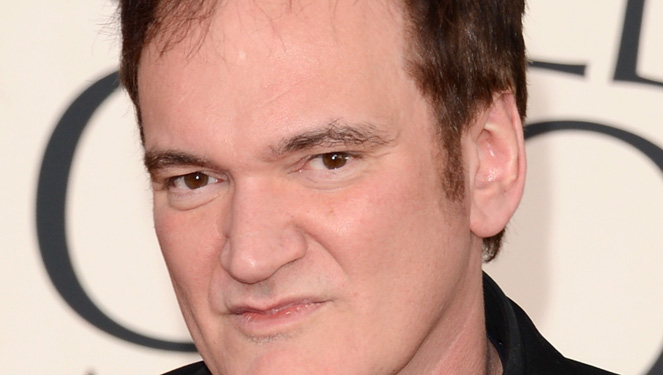
- Industry
Nominee Profile: Quentin Tarantino (Django Unchained – 2013)
He’s one of the best-known self-taught Hollywood filmmakers, a master at repurposing B-movies aesthetics into thoroughly original contemporary genre classics, while pushing the envelope of film making, and while he’s at it, resuscitating more than a few acting careers! Quentin Tarantino has been nominated six times to the Golden Globes.
From his debut with Reservoir Dogs at the Sundance Film Festival in 1992 and his sophomore Pulp Fiction (1994), to the most recent Inglorious Basterds and Django Unchained, Tarantino has been a force to reckon with in American cinema. A prolific and congenital cinephile author, a poet laureate of the Grindhouse ethos and the source of a singular innovative force in modern movies. Tarantino fell in love with movies from all over the world (especially Italian horror and Hong Kong kung fu) while working as a clerk at a video-store in Los Angeles’ South Bay, where he grew up (though he was born in Knoxville, Tennessee, in 1963). He watched thousands of films while at work, analyzed them, deconstructed them, and talked about them with his co-workers and his customers. “That was my film school, the best teaching I got in film making,” he has often said.
At the beginning Tarantino wanted to become an actor: he left high school at 15 to study acting. At 17 he started to work in the video-store. He became a screenwriter and a director, but often cast himself in his movies. He played the lead character in From Dusk ‘Til Dawn (1996), which he wrote and which was directed by his good pal and collaborator Robert Rodriguez (they shared directing credits in the two-fold Grindhouse in 2007). About the small roles in his own films, Tarantino said: “I don’t mind cutting myself down. But I don’t want to have some actor that’s really cool waiting around for months and then cut his role down to nothing.”
His often dark, controversial humor has been praised by many but also criticized by others for being out of place, exaggerated and for superficially treating serious matters. Tarantino has consistently shrugged off such criticism. “I basically make dramas,” he said. “Yet I pride myself that some of the funny moments in my films are as funny as any comedy that’s playing in the theaters.”
After the Sandy Hook elementary school tragedy, which happened shortly after Django Unchained was released, Tarantino was questioned once again on whether he felt that his movies could be partly responsible for teaching violence to young people. “I don’t understand why I always have to be questioned about this”, he responded. “The issue is about gun control and mental health. It’s disrespectful to the memory of the people who died to talk about movies.”
Tarantino has always defended his writing and the use of racial epithets. “As a writer,” he stated in 1997, when Jackie Brown was released, “I demand the right to write any character in the world that I want to write. That is how a segment of the black community talks, people living in Compton, in Carson, in Inglewood, where Jackie Brown takes place. I’m telling the truth. I have the right to tell the truth. I do not have the right to lie.”
Jackie Brown is a tribute to blaxploitation films and starred former 1970s star, Pam Grier. Grier was not the only actress brought back to the big screen by Tarantino, after years of absence. He’s become famous for his rediscovery of some passed glories, from John Travolta (Pulp Fiction) to Don Johnson (Django Unchained).
He has often referred to Uma Thurman – lead of his Kill Bill, Vol. 1 and 2 (2003/04) – as his “muse” and often used many actors in multiple films, such as Samuel L. Jackson, Christoph Waltz (who won two consecutive Golden Globes and Academy Awards as Best Supporting Actor for Inglorious Basterds and Django Unchained) and Eli Roth.
Silvia Bizio